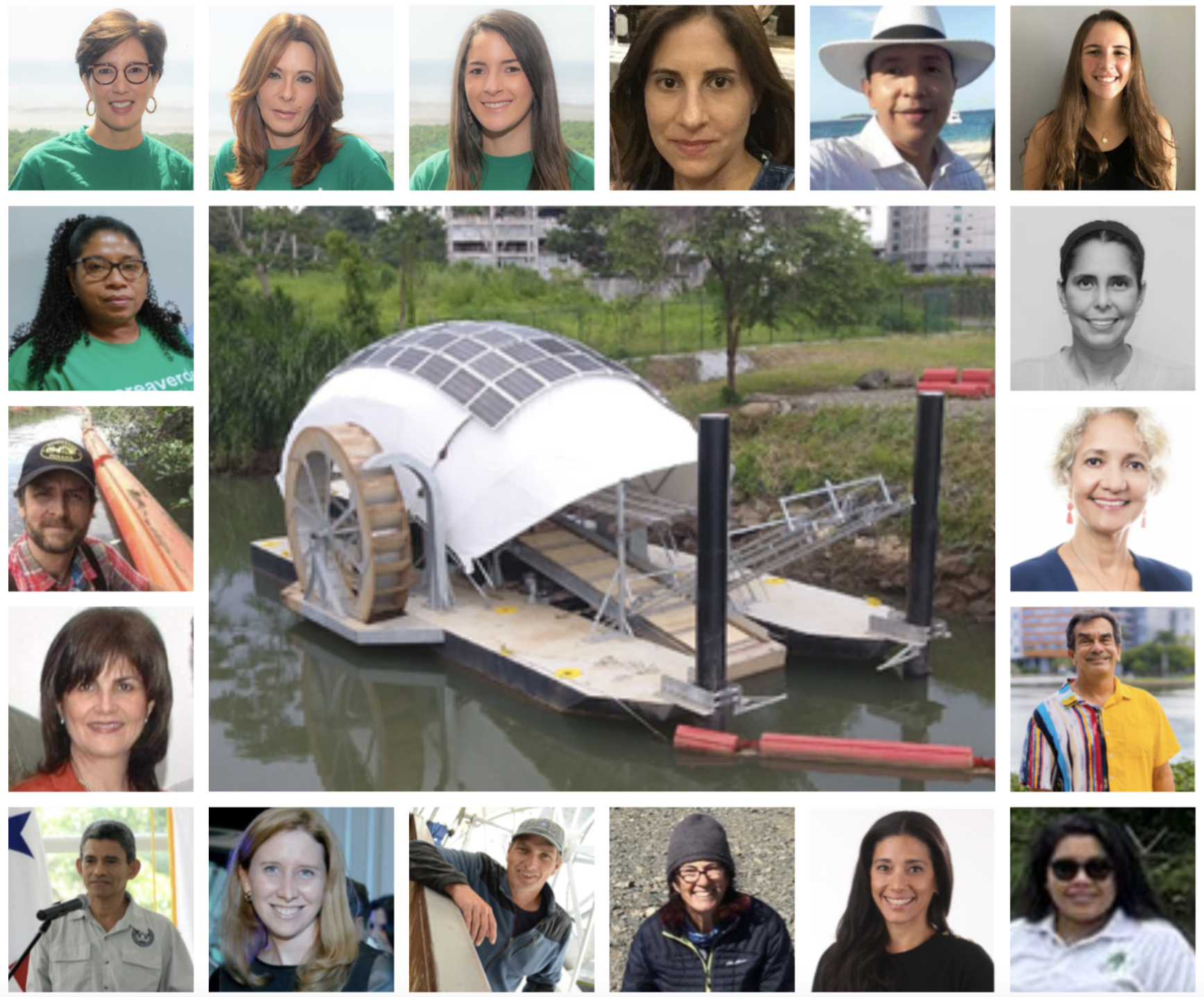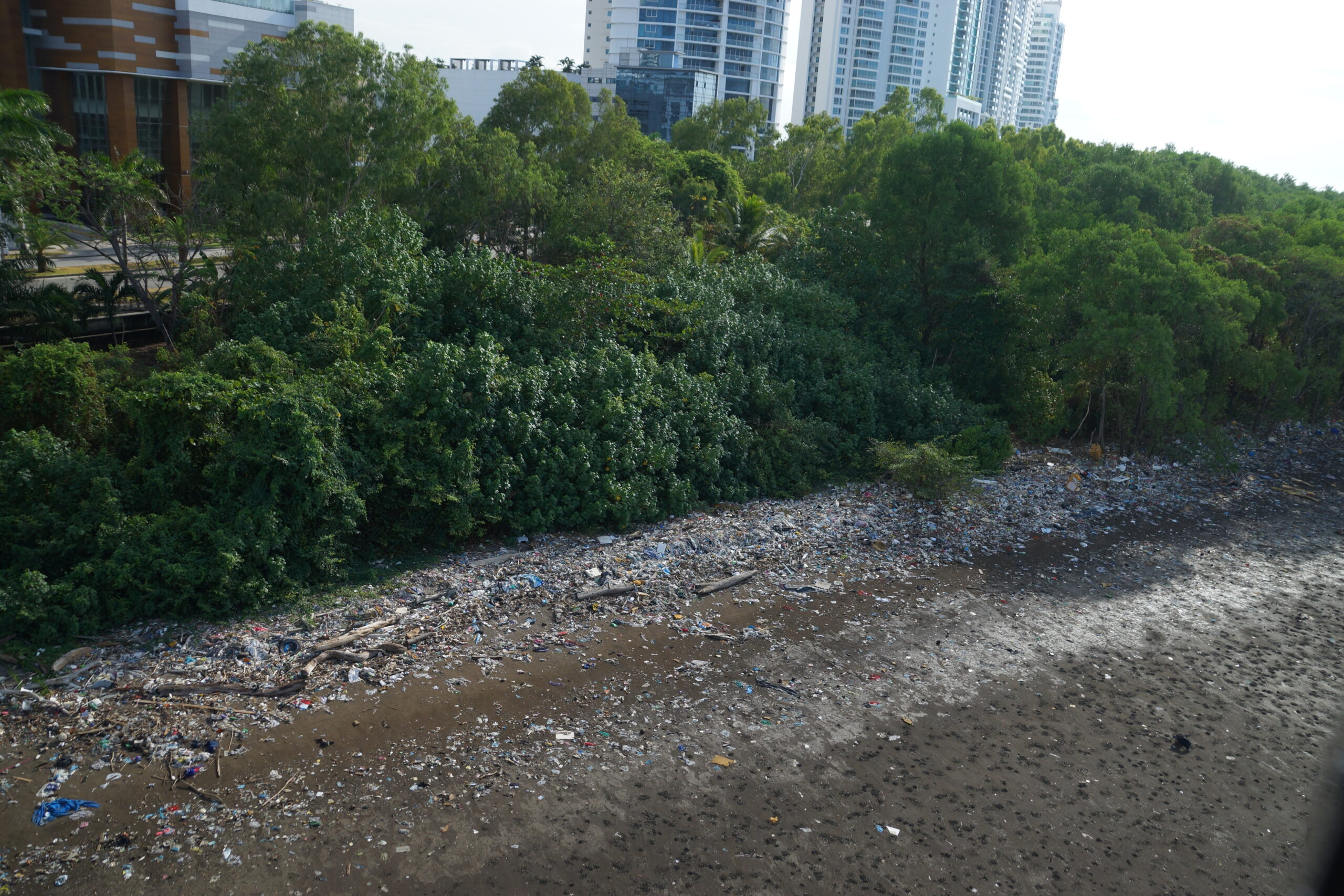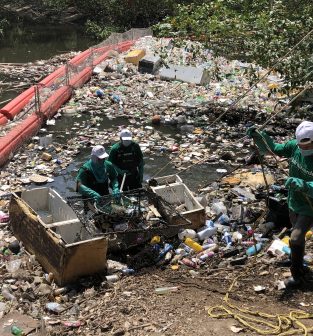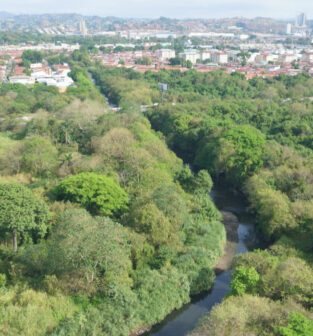Juan Díaz River, Panama
Project lead: Marea Verde
Introduction
The Juan Díaz River watershed extends nearly 322 square kilometers and is composed of several medium- and small-sized rivers within the Panama and San Miguelito Districts. Before emptying into Panama Bay, the river flows through mudflats and mangroves—critically important ecosystems that provide protection for coastal communities, foster incredible amounts of biodiversity, buoy local fishing and ecotourism industries, and sequester carbon. Panama Bay is host to significant biodiversity which in turn supports socioeconomic activities including fishing and ecotourism. Every year, nearly 1,000 humpback whales visit the protected Panama Bay to nurse their young and it serves as a refuge for more than 20 species of migratory shorebirds.
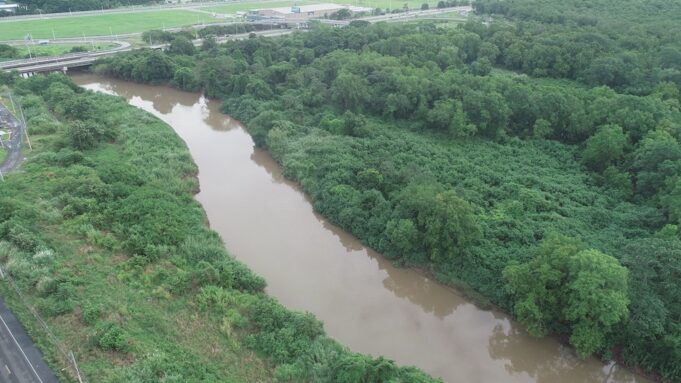
The Juan Díaz River watershed is home to approximately 615,000 people, many of whom live in informal low-income communities with non-optimal waste collection systems. The upper basin of the watershed is undergoing an accelerated urbanization process, converting forested lands into residential areas and causing high levels of erosion. The mangroves that grow along the river bank and mouth act as a natural trap for erosion and waste, which in turn negatively impacts the health of the ecosystem and those that depend on it. The Juan Díaz River is one of seven rivers in Panama City that together discharge over 100,000 tons of land-generated debris into Panama Bay each year.
Marea Verde is fighting the flow of plastic into Panama Bay by intercepting it in its path in the Juan Díaz River.
Intervention Plan
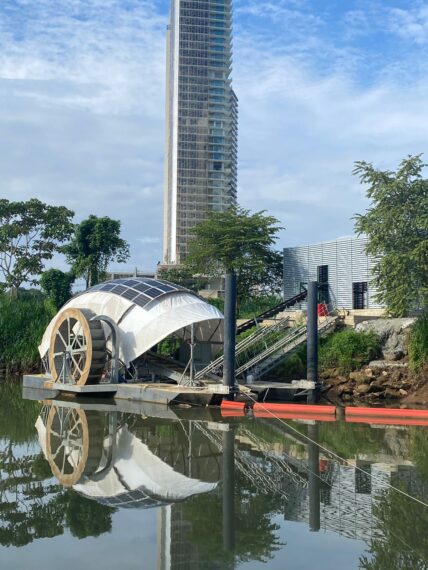
Marea Verde is bringing the first autonomous, renewable energy-powered trash wheel to Latin America in the Juan Díaz River. Designed by Clearwater Mills in Baltimore, USA, the trash wheel is a groundbreaking innovation in the growing effort to control trash and debris flowing from waterways into the ocean. Marea Verde and Clearwater Mills have adapted the system to the specific characteristics of the Juan Díaz River, including the addition of an extended conveyor belt to carry the captured waste directly to a shoreside sorting center.
The device, affectionately nicknamed “Wanda (Wheel + Action) Diaz”, operates on mechanical power supplied by a water wheel that is rotated by the river current. It also has solar panels as a backup energy system. A floating boom spans the river to direct waste to the device, where it is then lifted out of the water by the wheel-powered conveyor and deposited into a container for appropriate waste disposal. Recyclables will be manually separated from the non-recyclables before reaching the container and carried to an on-shore sorting facility via a transverse conveyor.
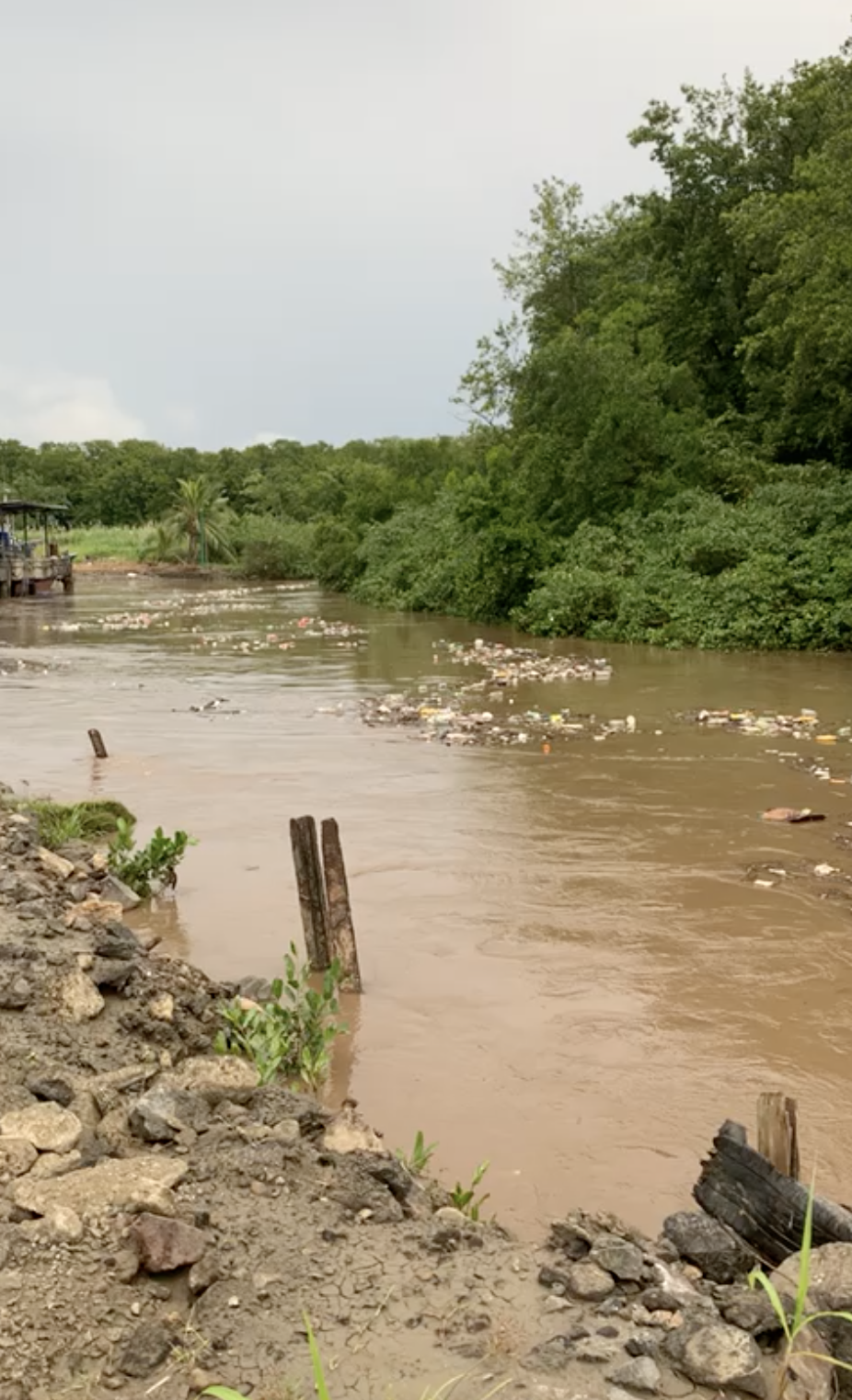
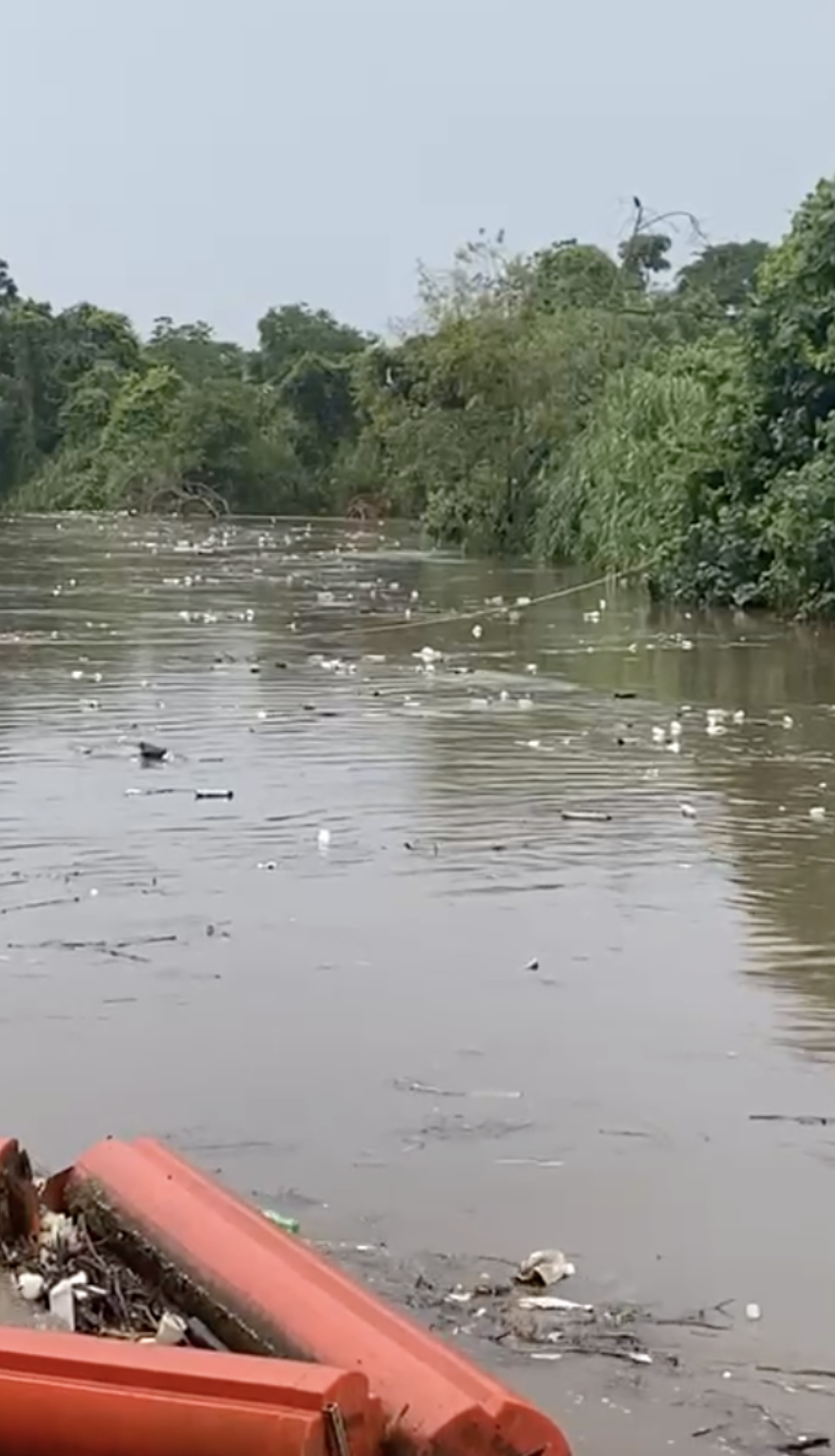
Data is collected on the processed material, and recyclable plastics are collected by local waste management and recycling partners. Marea Verde is also partnering with the Panamanian and Silicon Valley start-up Wisy to develop an object recognition artificial intelligence (AI) system to classify and measure the plastic waste as it is conveyed out of the river.
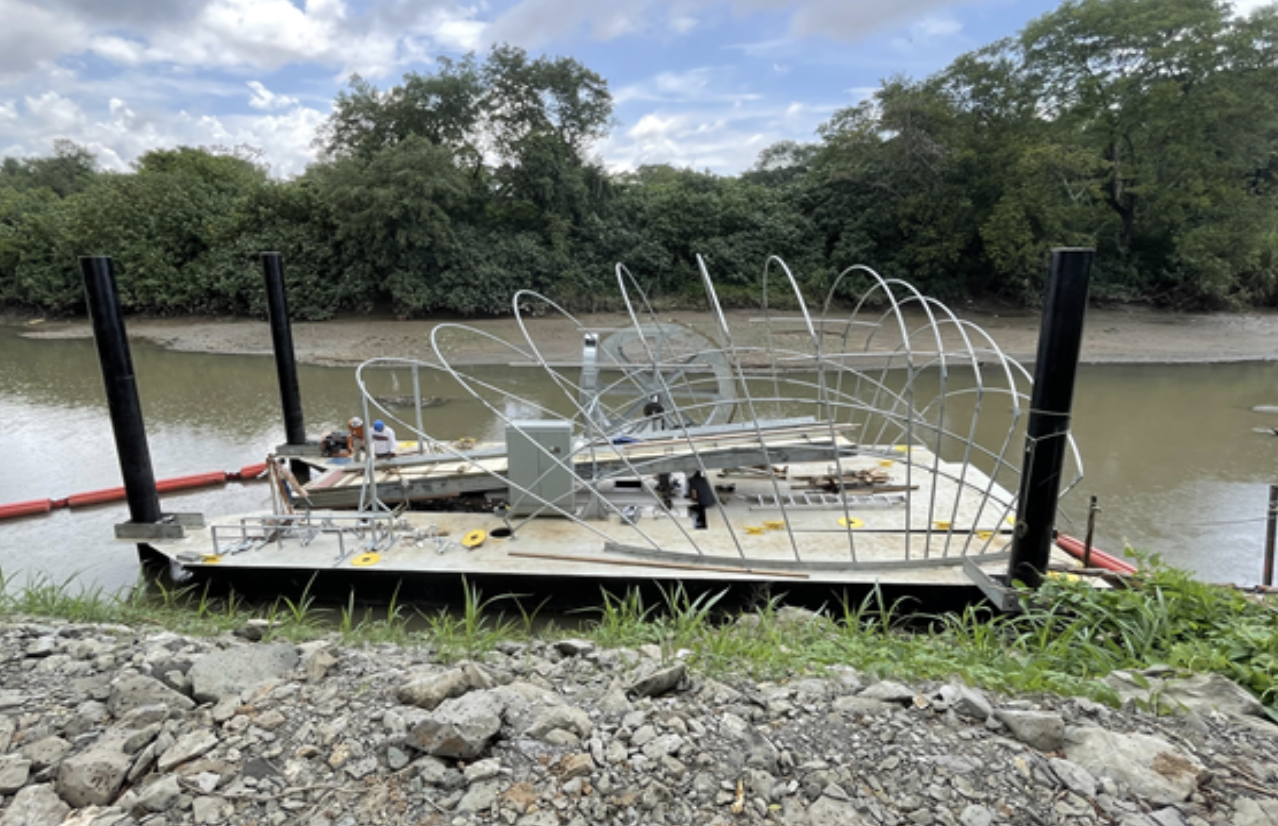
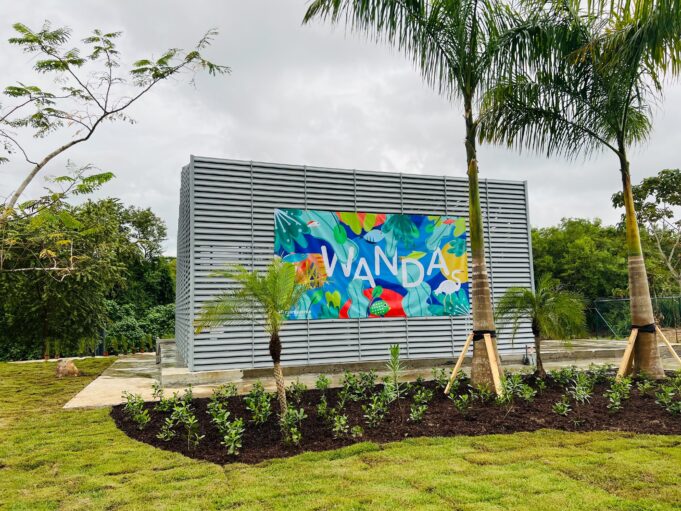
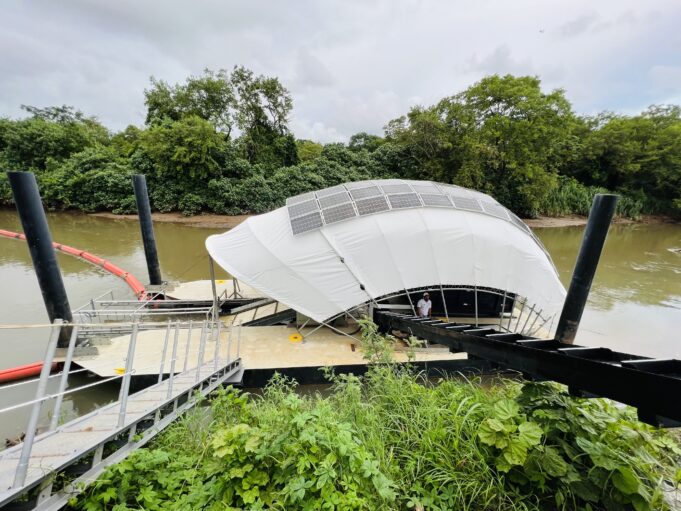
Community Engagement
Marea Verde is taking a three-pronged approach to raise awareness about Wanda and reduce plastic waste in the Juan Díaz River watershed:
- Local community engagement through focus groups, workshops, and seed capital to community leaders for pilot recycling projects.
- Collaborations with strategic partners to increase media impact, including events, use of traditional and social media, exhibits, artwork made of plastic, and a children’s book to be distributed in the Juan Díaz River watershed schools at no cost.
- Engagement with government representatives to identify key policy areas in Panama that should be targeted to improve the plastic and waste disposal problem. These actions include providing data and advocating for the enactment of new policies.
During the initial phases of community outreach, an overwhelming majority of women and youths became involved in the project and expressed interest in recycling, Wanda, and making a difference in their communities. This is indicative of the clear link between women and household administration, and parents and children’s school activities. The team has tailored their community engagement strategy to better empower women in their household decisions and involve parents in the project through their children’s schools. In addition, the project aims to foster entrepreneurship in plastic collection and transformation activities, providing opportunities for the high percentage of unemployed young adults in these communities.
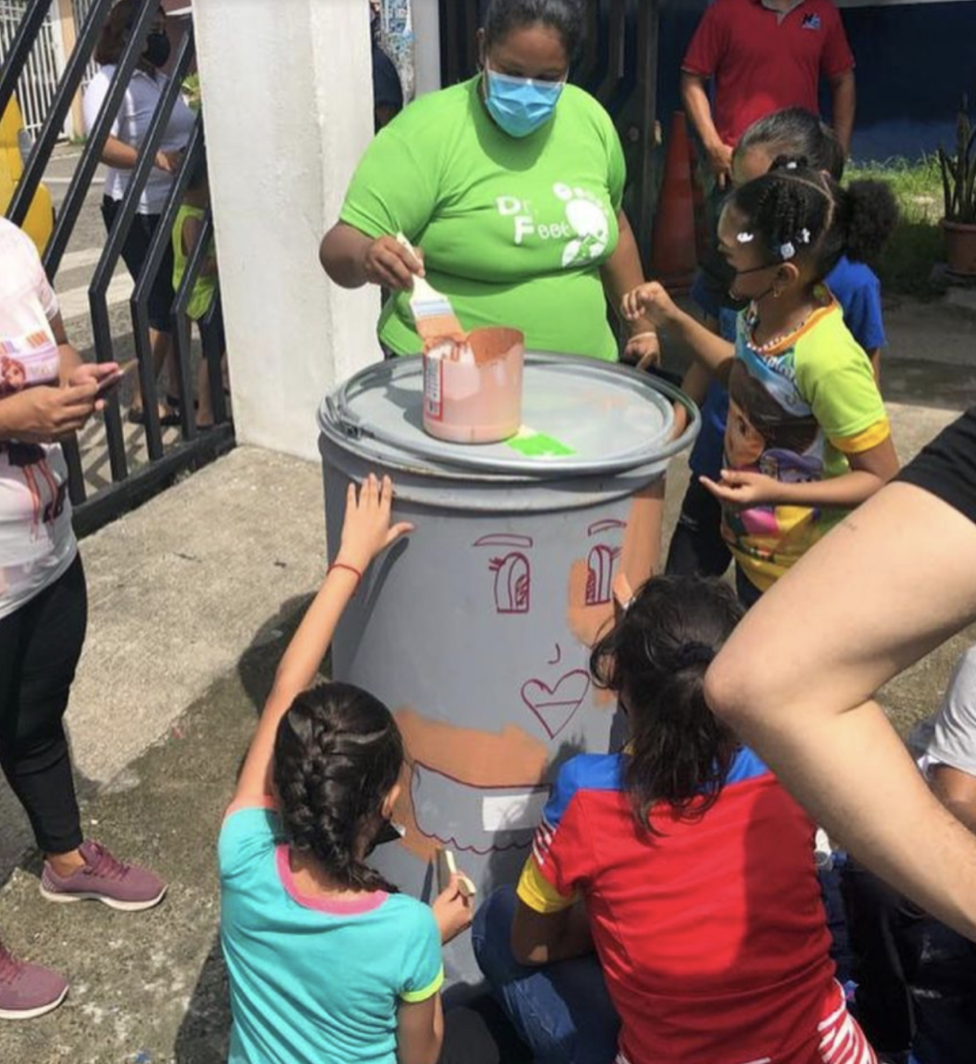
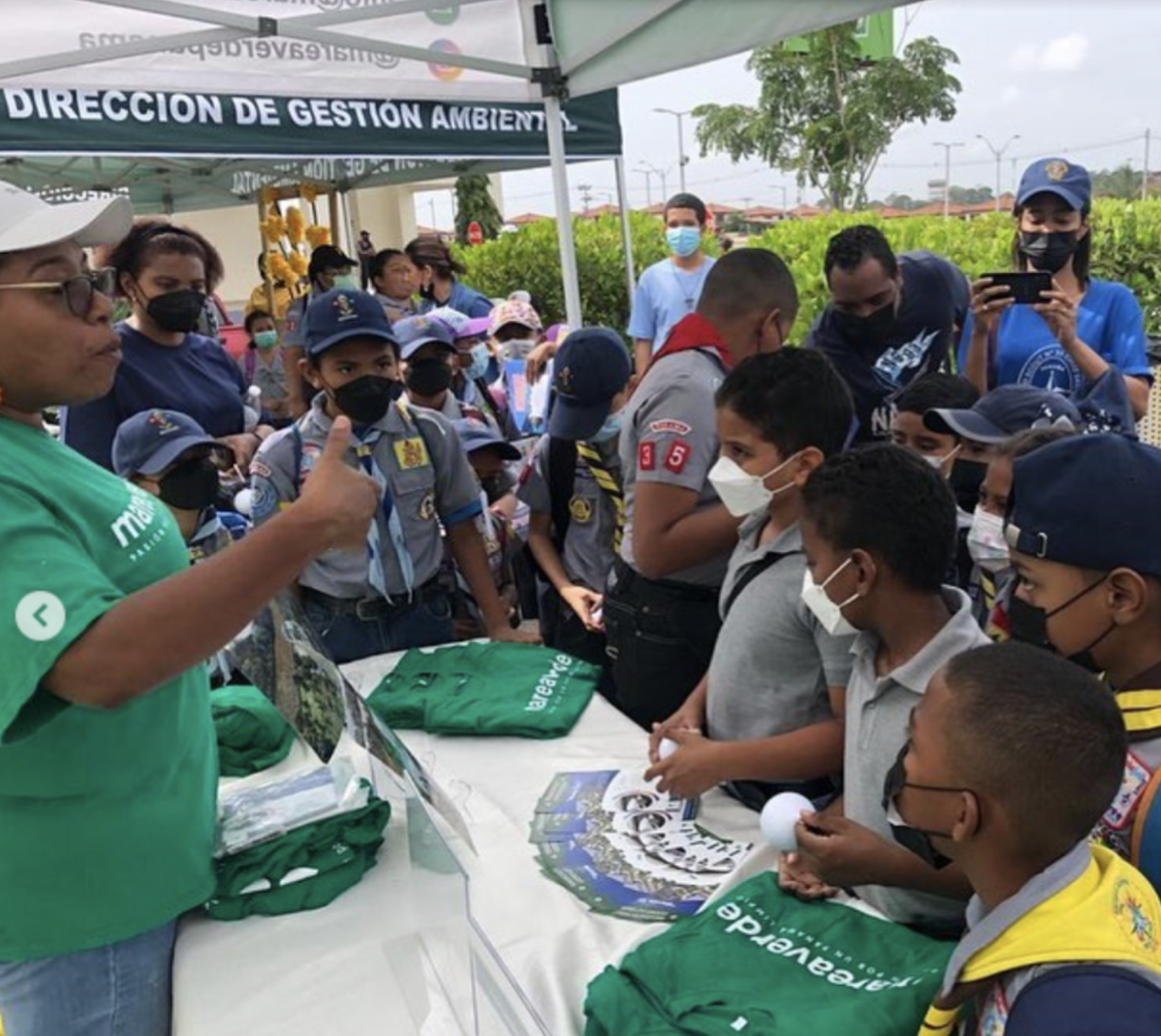
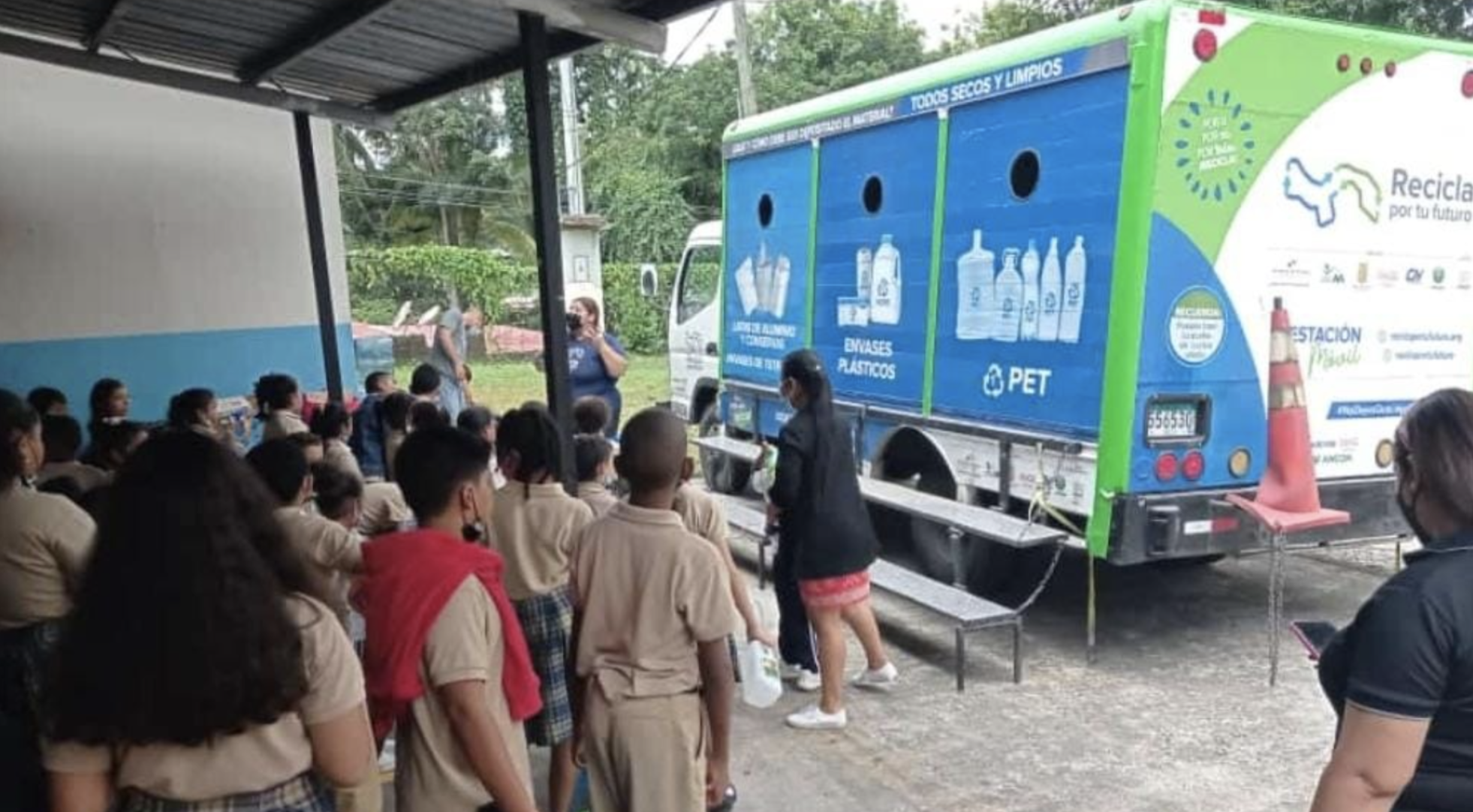
The Team
 Marea Verde is a non-profit organization formed in 2017 that focuses on creating awareness and taking action on mitigating pollution from solid waste in the rivers and coasts of Panama. They have developed clean-up initiatives in the Matías Hernández and Tapia Rivers, and have implemented education campaigns with local schools and awareness campaigns for sustainable alternatives for solid waste management. Marea Verde has also intervened in the clean up and restoration of the mangrove area in Costa del Este with the BoB (Barrera o Basura) low-cost capture system. Clearwater Mills, the creator of the trash wheel, is a sustainable environmental technologies company based in Baltimore, Maryland, USA. The artificial intelligence component is being developed by our partner Wisy, a Panamanian and Silicon Valley startup focused on computer vision of consumer packaged goods and related analytics.
Marea Verde is a non-profit organization formed in 2017 that focuses on creating awareness and taking action on mitigating pollution from solid waste in the rivers and coasts of Panama. They have developed clean-up initiatives in the Matías Hernández and Tapia Rivers, and have implemented education campaigns with local schools and awareness campaigns for sustainable alternatives for solid waste management. Marea Verde has also intervened in the clean up and restoration of the mangrove area in Costa del Este with the BoB (Barrera o Basura) low-cost capture system. Clearwater Mills, the creator of the trash wheel, is a sustainable environmental technologies company based in Baltimore, Maryland, USA. The artificial intelligence component is being developed by our partner Wisy, a Panamanian and Silicon Valley startup focused on computer vision of consumer packaged goods and related analytics.
Interested in supporting Marea Verde’s work in Panama? Donate here
